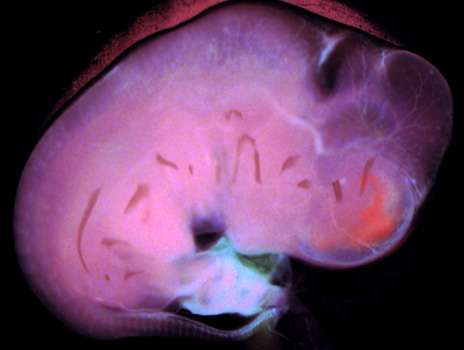Tiny 'garbage collectors' help control brain development

(Medical Xpress)—Millions of tiny nanovesicles—once thought to be merely molecular garbage collectors—are actually stuffed with information crucial to brain development, Yale researchers report.
Researchers in the lab of Angelique Bordey, professor of neurosurgery and of physiology, studied exosome nanovesicles found in the cerebrospinal fluid of the developing brains of mouse embryos, stained pink in the accompanying photo. Until the last few years, scientists had believed that the primary job of these nanovesicles was to sweep up byproducts of cellular activity.
However, the researchers discovered these nanovesicles contained hundreds of proteins and bits of small RNAs that regulate a key molecular pathway controlling the density of neurons in developing brain. Bordey said it may be possible one day to analyze the contents of these nanovesicles to diagnose neurological conditions such as autism before birth.
To learn more, read the study published online Feb. 18 in the journal PLOS ONE.

















